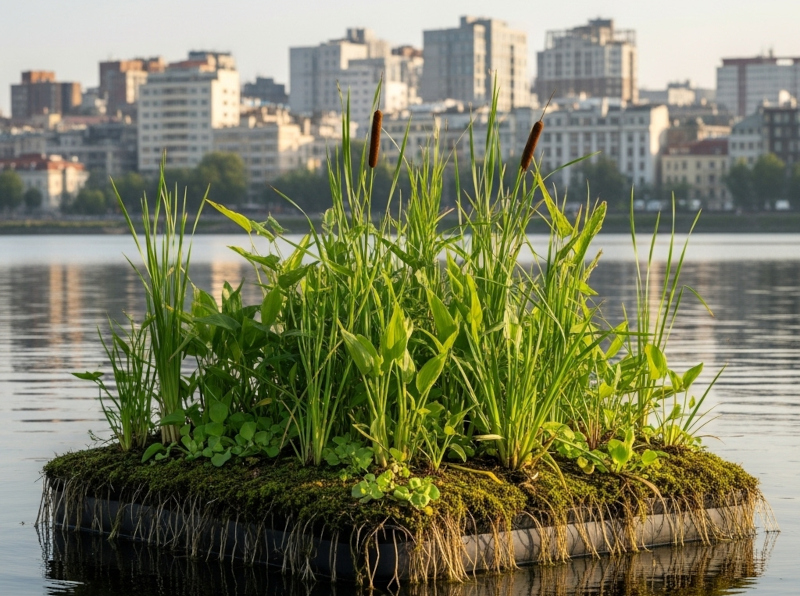Grant for 3D-Printed Floating Islands Designed to Remove Pharmaceuticals from Water Reservoirs

18 08 2025
Starting from the new academic year, the Faculty of Biology at the University of Warsaw will begin implementing an NCN Opus 28 grant entitled “Floating islands based on (bio)functionalized mineral and organic adsorbents as a passive, nature-inspired purification system for removing pharmaceuticals from urban water reservoirs.” This interdisciplinary project, which combines mineralogy, chemistry, materials science, and microbiology, will be carried out as a consortium between the AGH University of Science and Technology in Kraków (project leader) and the University of Warsaw.
At AGH, the project will be led by Prof. Tomasz Bajda, PhD, DSc, Eng., from the Faculty of Geology, Geophysics and Environmental Protection. The team from the Faculty of Biology at the University of Warsaw will be headed by Dr. Przemysław Decewicz from the Laboratory of Applied Microbial Ecology (https://microecolab.com/). The project aims to explore the potential of using mineral adsorbents to construct floating islands which, after further biofunctionalization with bacteria capable of pharmaceutical biodegradation, could serve as a passive water purification system in reservoirs.
Pharmaceuticals are now a key component of everyday human life. Both prescription and over-the-counter drugs are widely used, often leading to overuse in households and certain industries, such as agriculture and aquaculture. Many pharmaceuticals are only partially metabolized by the organisms they are intended for, resulting in their direct release into water systems—including sewage and wastewater treatment plants—and eventually into lakes, retention basins, rivers, or seas.
This issue is particularly acute in urban areas with high population density, where there is a constant and high influx of pharmaceuticals and their metabolites into sewage systems. This leads to the accumulation of these microcontaminants in wastewater treatment plants and urban water reservoirs (including recreational ones).
To address this, researchers from AGH and the University of Warsaw plan to develop a passive remediation system in the form of floating islands. These islands will be made from biopolymers and highly reactive adsorbents designed to “immobilize” pharmaceuticals. Additionally, the islands will be colonized by bacteria capable of degrading pharmaceuticals, ensuring the system operates effectively and sustainably over the long term.
The project plan involves conducting research at varying levels of complexity. In the laboratory, both simple model systems and microcosms simulating natural ecosystems will be used. The final stage of the project will involve testing the islands’ performance in a selected water reservoir. This approach will enable scientists from AGH and the University of Warsaw not only to evaluate the system’s effectiveness but also to assess its biosafety and environmental impact.
Illustration generated using artificial intelligence.